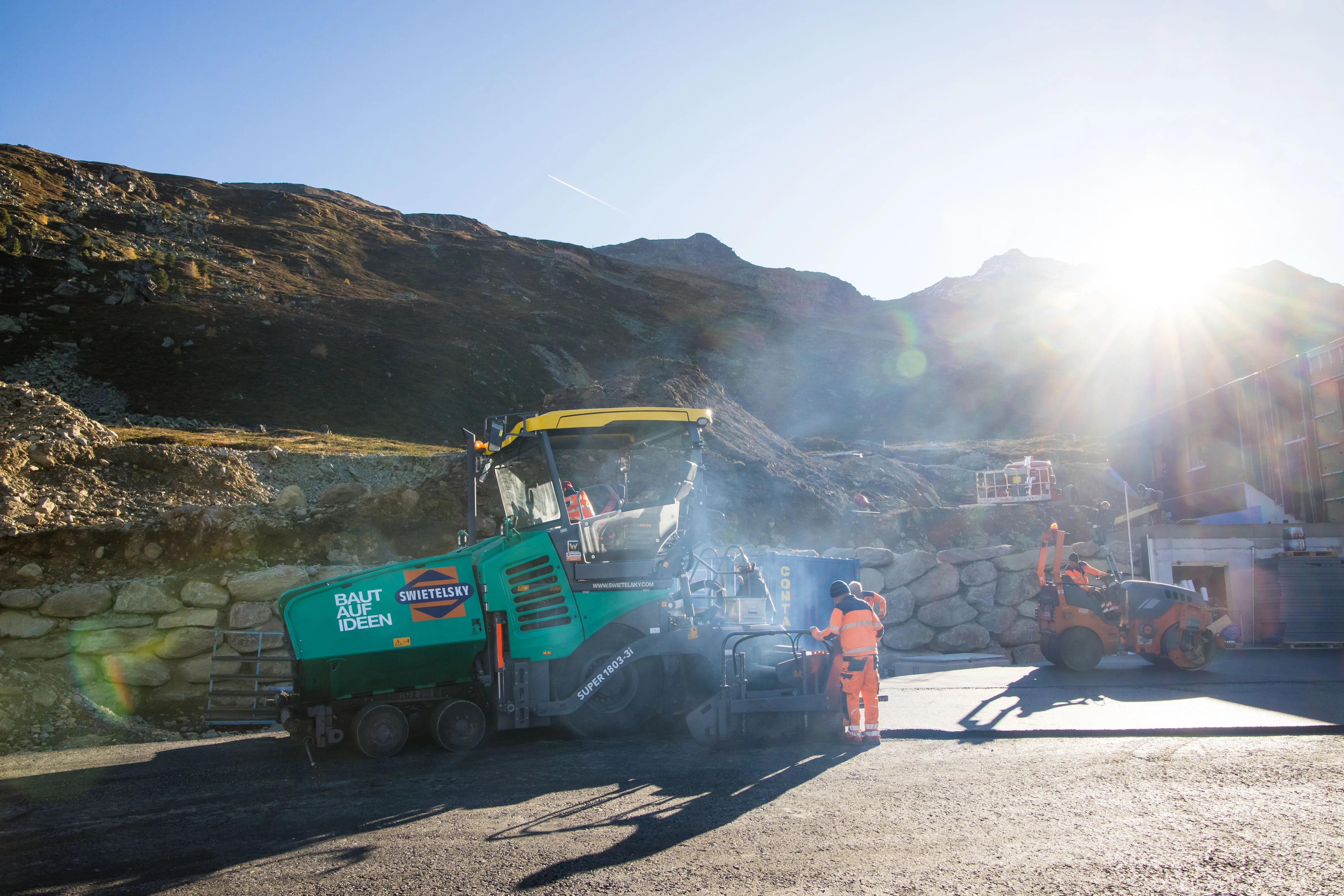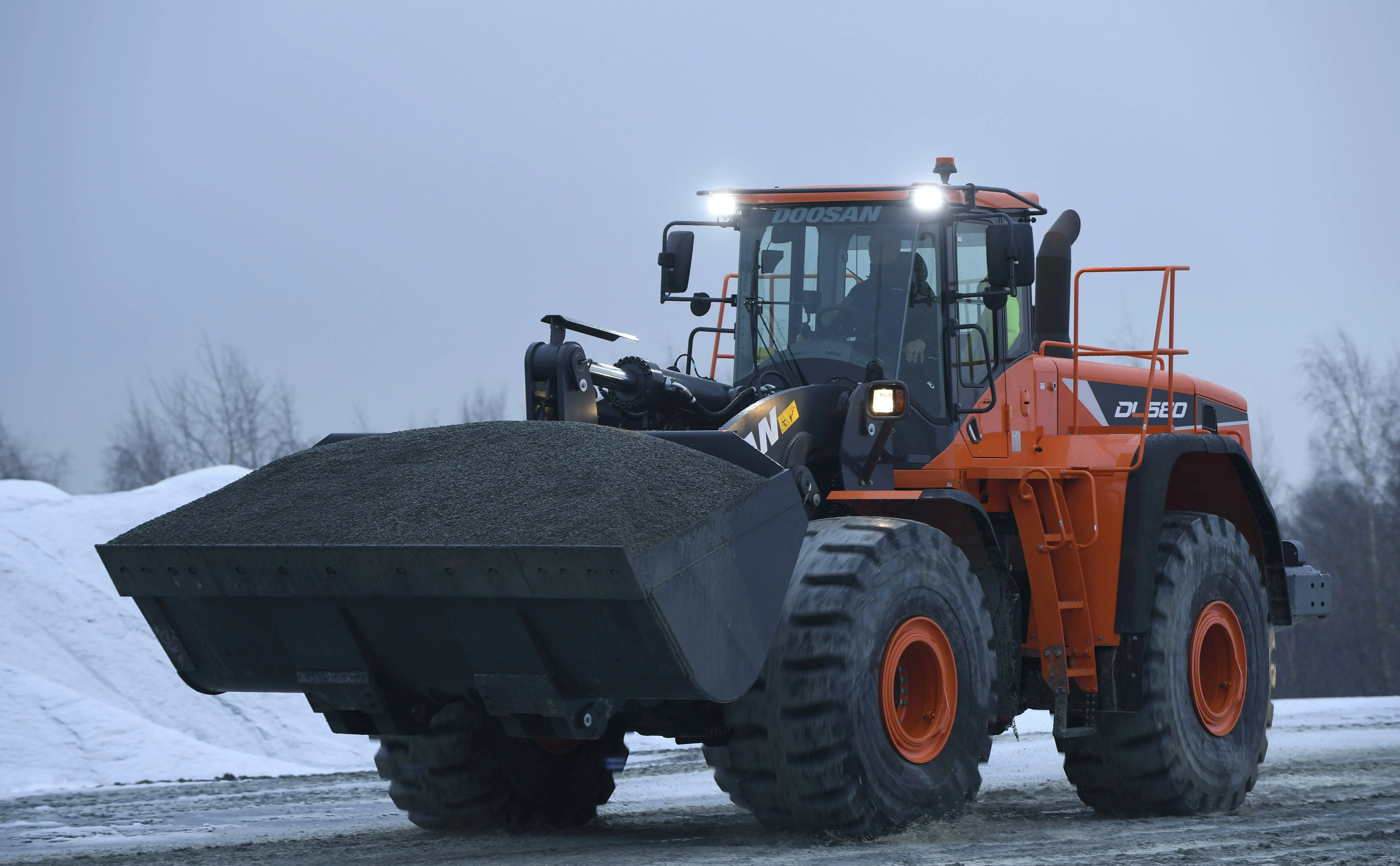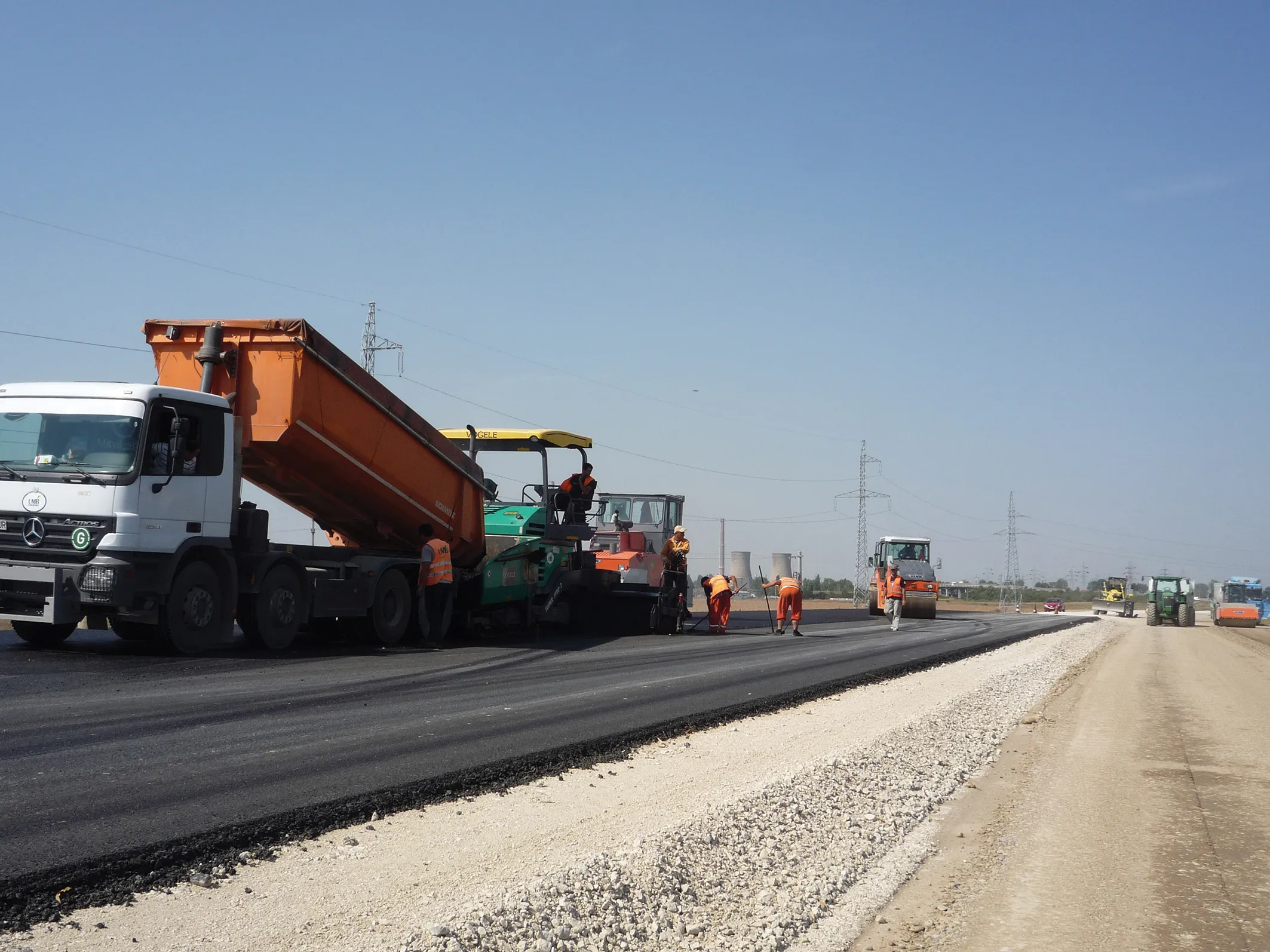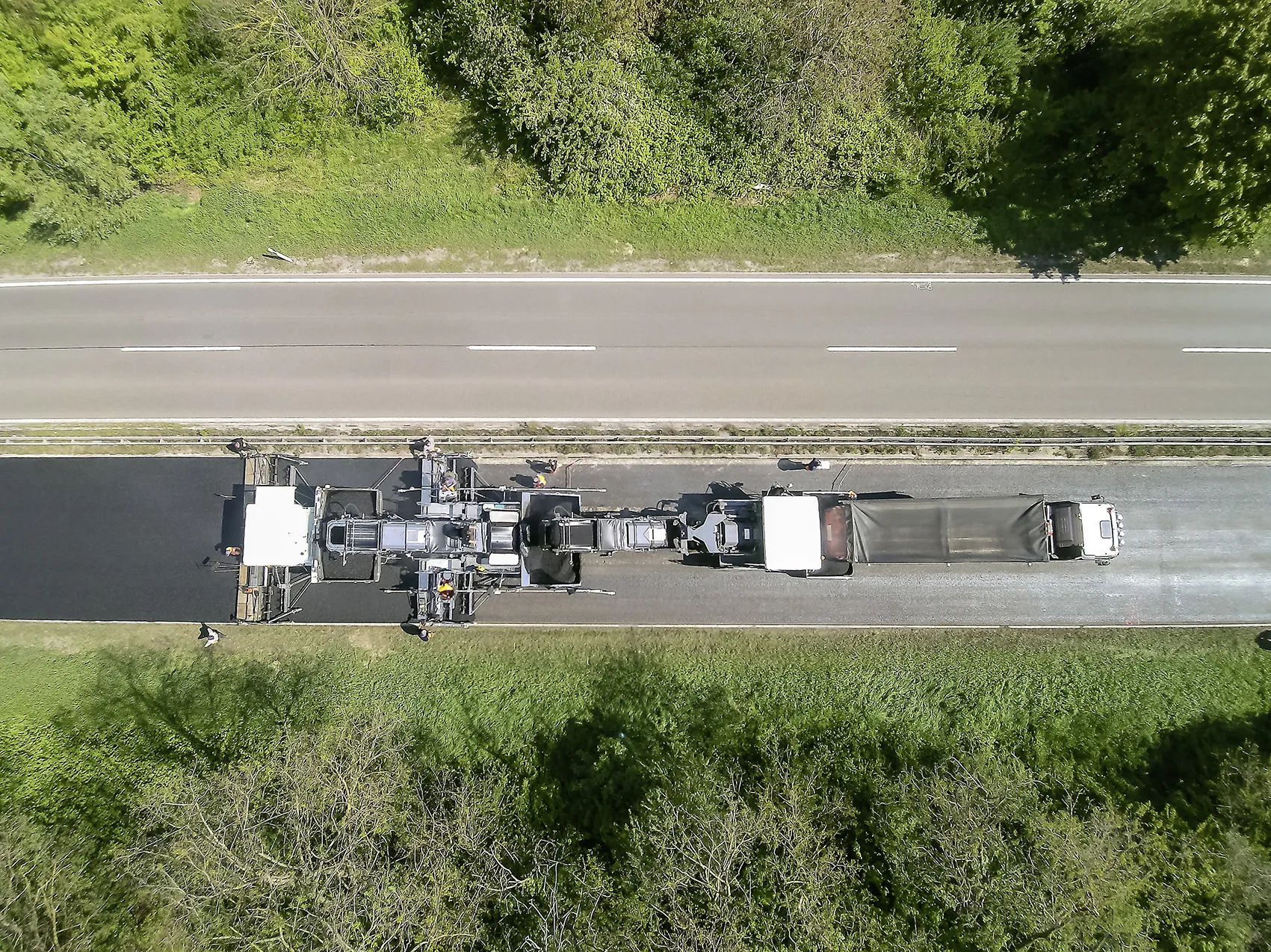
Extending a helipad in Hochgurgl, around 2,100m up in the Austrian Tyrol, was not routine, even for the vastly experienced paving team from contractor Swietelsky.
It is part of a toll booth on the Timmelsjoch road in the High Alps which links the Austria’s Tyrol to the Italian South Tyrol. As such, it crosses the highest national road boundary in Austria at an altitude of 2,474m. This spectacular stretch of road can be kept free of snow for only a few months every year.
On the job site in Hochgurgl, VÖGELE’s SUPER 1803-3i wheeled paver extended the helipad and hangar by two-thirds to create an area of around 4,100m². The location serves as a base station for air transport operations, rescue and emergency services and avalanche blasting. The improvements will enable up to four helicopters to take off and land.
At such a high altitude the air is thinner and the terrain itself is a challenge. The machines also frequently must overcome huge inclines while simultaneously paving tight bends, said Andreas Berkmann, construction manager for asphalt paving and road construction at Swietelsky.
Thankfully, the VÖGELE SUPER 1803-3i wheeled paver – like all VÖGELE wheeled pavers – can travel at up to 20km/h under its own power. This means it quickly reaches job sites which even low-loaders find difficult to access.
The wheeled undercarriage is also an advantage when repositioning the machine. For the Tyrol job, each carriageway was paved in the same direction, so the SUPER 1803-3i had to keep returning to its starting point. It completed this section more quickly than any tracked paver.
Another advantage of the wheeled paver is an option which increases the outstanding manœuvrability of the SUPER 1803-3i still further: the pivot steer steering brake. It automatically slows down the rear inside wheel hydraulically at maximum steering angle. This reduces the outside turning circle to a modest 3.5m. Without the pivot steer feature, this would be 3m larger!
The asphalt structure of this air traffic surface differs somewhat from conventional road construction. Because shear forces such as those always occurring on roads from braking vehicles, for example, do not have to be taken into account, it is possible to dispense with the binder course. As a result, the surface course was paved straight onto the base course.
The SUPER 1803-3i and its AB 500 TV Extending Screed ensured good pre-compaction and evenness of the surface. The screed compacts the layers using both tamper and vibrators. The two Swietelsky screed operators maintained layer thicknesses manually – 10cm for the base course and 4cm for the surface course.
Of course ,where steep terrain is involved, high output is as important as manœuvrability. VÖGELE has designed the drive concept so that the largest wheeled paver suits its sphere of application perfectly – regardless of the climate in which it is operating. in whichever climate of the world it is being used. The diesel engine mobilises 129kW at 2,000rpm to do this. However, because maximum output is usually not required, the system has an ECO setting for an even more environmentally-friendly and economical operation.
The SUPER 1803-3i makes a further contribution to the environment with its system for cleaning exhaust gas. Like all the machines in the WIRTGEN GROUP with the “i” suffix in their product names, the wheeled paver is extremely clean-running. It meets the strict standards of European exhaust emissions level V as well as the US standard EPA Tier 4f.
The SUPER 1803-3i is a member of the VÖGELE Premium Line. These pavers integrate the current functions and innovations of the “Dash 3” generation of pavers, particularly the ErgoPlus operating system. The machines feature a great many other ecological, economic and ergonomic benefits. The VÖGELE EcoPlus package, for instance, significantly reduces fuel consumption and noise levels. The AutoSet Plus automatic functions furthermore relieve users of a massive amount of work.
The manœuvrability typical of wheeled pavers means the machine can even cope with construction projects involving sharp bends, like roundabouts, with style. The reason is that the undercarriage has individual hydraulic drives in both rear wheels and in two or optionally all four front wheels for maximum power transmission. The front axle which oscillates in both the transverse and longitudinal directions guarantees uninterrupted contact with the ground. In conjunction with electronic traction management and electronic differential locking, the VÖGELE undercarriage ensures optimum traction.
In brief, the maximum laydown rate is 200 tonnes per hour and maximum pave width is 8m. The wheeled undercarriage has oscillating front wheels, of which two and optionally four can be driven (6x4 or 6x6 drive).
Pivot steer steering brake significantly reduces the turning circle to 3.5m instead of 6.5m. The VÖGELE EcoPlus low-emissions package greatly cuts down fuel consumption and noise levels.
Transport width is 2.55m and there are also AutoSet Plus functions for quick and safe repositioning on site and for saving own paving programmes.








